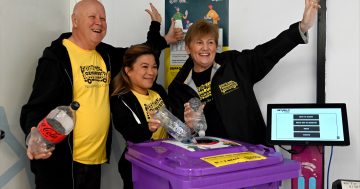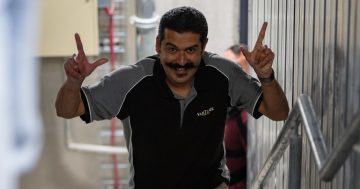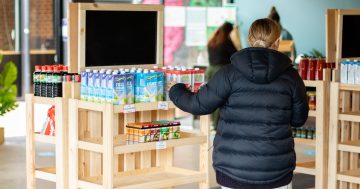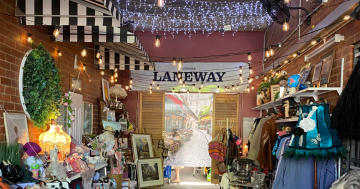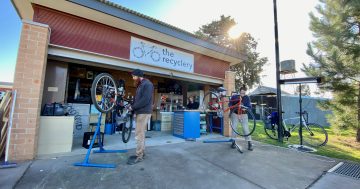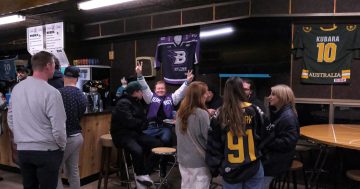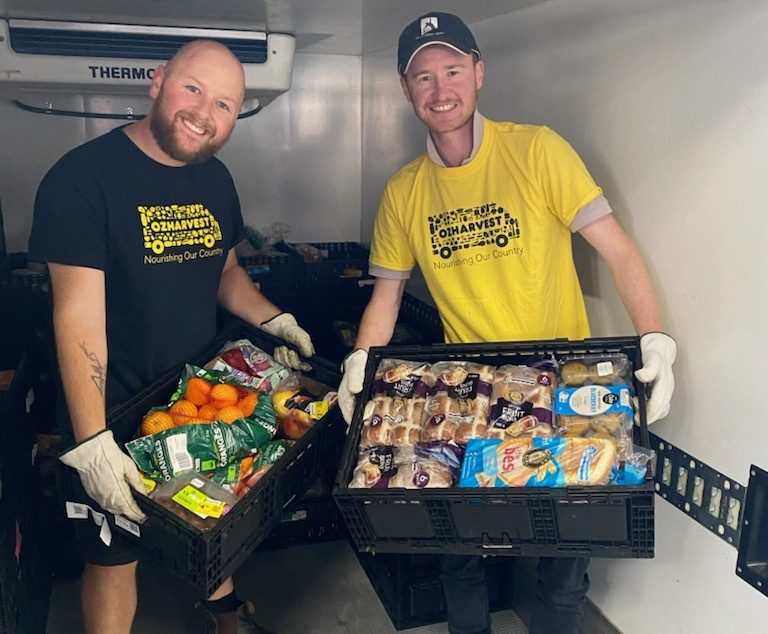
Ozharvest couldn’t do what it does without volunteers. James Briguglio from OzHarvest and volunteer Ed Bushell from Geocon. Photo: Geocon.
As inflation soars and the cost of living rises, here’s a sobering statistic: one fifth of the food purchased in Australia ends up in landfill.
OzHarvest Canberra City manager Belinda Barnier says as horrifying as this data is, it’s worse when she considers how much money households can save and how simple it is to avoid this waste.
“If we ate what we purchased and didn’t send it to landfill that’s an after-tax pay rise of $1500 per household,” she says.
“That’s $30 a week or a bag of groceries – per household!
“Plan your meals, write a list, extend the dishes you do make to use your leftovers, be resourceful, make stock … there are several very simple mitigating actions we can all take.”
Canberra’s OzHarvest team comprises a permanent staff base of three and a volunteer body of up to 40 – and they are needed now more than ever.
“The effects of inflation and the rise in the cost of living are pretty sad to see – it’s actually scary to uncover some of it,” Belinda says.
“We’re all challenged in many different ways at the moment, but nourishment remains pivotal to the health and wellbeing of all people.
“Our goal is to save nourishing food from going to landfill and ensure people in need get fed.”
OzHarvest is perhaps best known for its distinctive yellow vans on the frontlines, picking up as much delicious food as possible and delivering it to food charities which redistribute it to people who need it. But the organisation’s approach to diverting food from landfills is multi-pronged.
In Canberra, much of the focus is on education. Currently 18 ACT schools are enrolled in the Feast program. The six-week teacher-led program is held in classrooms aligned to the Australian curriculum in STEM learning areas.
Teaching children valuable life skills to better manage food and nutrition is “a lot of fun” according to Belinda – and not just for the kids.
“The teachers are buoyed and the students adore it,” she says. “What’s more, we find the teacher becomes a co-learner with the students.
“The kids also go home and pass their learnings onto their parents, so food management improves in the home.”
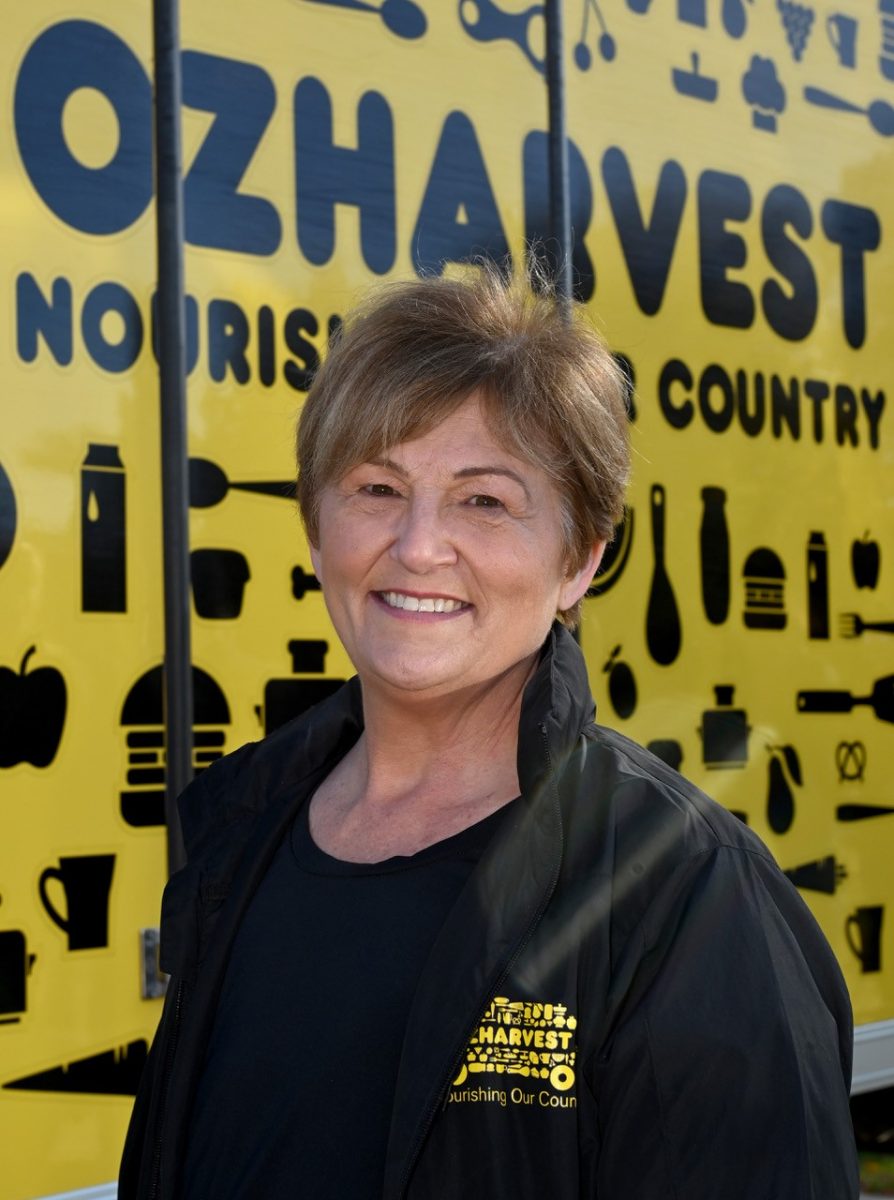
OzHarvest Canberra City manager Belinda Barnier. Photo: Graham Tidy, OzHarvest.
Then there’s the Nutrition Education and Skills Training (NEST) program, aimed at migrants or people with linguistically diverse backgrounds.
But as much as this tiny-but-passionate team does, it’s champing at the bit to do more. Belinda is keen to introduce the Nourish program to the ACT, which bridges the gap by teaching food industry skills for youth not attending school or who don’t have a career path.
And of course – there’s still a lot of perfectly good food still going to Canberra’s landfill that the OzHarvest team wants to divert to those in need. As it is, the team – with just two refrigerated vans – shuttles about 15,000 meals worth of rescued food each week to 75 charities and has a growing list of hopeful beneficiaries.
Belinda says the team’s ability to reduce what ends up in landfill is only limited by its resources – more drivers, staff, vans and awareness are key, and volunteers are like gold.

Geocon managing director Nick Georgalis hands the key over to OzHarvest’s Belinda Barnier. Photo: Graham Tidy, OzHarvest Canberra.
Geocon development accountant Ed Bushell recently participated in his workplace community engagement program, which supports OzHarvest among its charities. He describes his day driving an OzHarvest van as illuminating.
“It was a real eye-opener to see the amount and quality of food that would otherwise go to waste if it weren’t for OzHarvest. A lot of community groups were able to benefit from it instead,” he says.
“OzHarvest made me feel welcome from the get-go, they set clear expectations and the itinerary meant everything ran smoothly.
“I felt a sense of pride in what we had achieved to assist community groups and eliminate food waste. I would definitely do it again.”
Geocon has also gifted a ute to OzHarvest, taking its tiny fleet to three. The new vehicle will be a much-needed “mobile office” allowing Belinda and her team to expand community engagement efforts.












